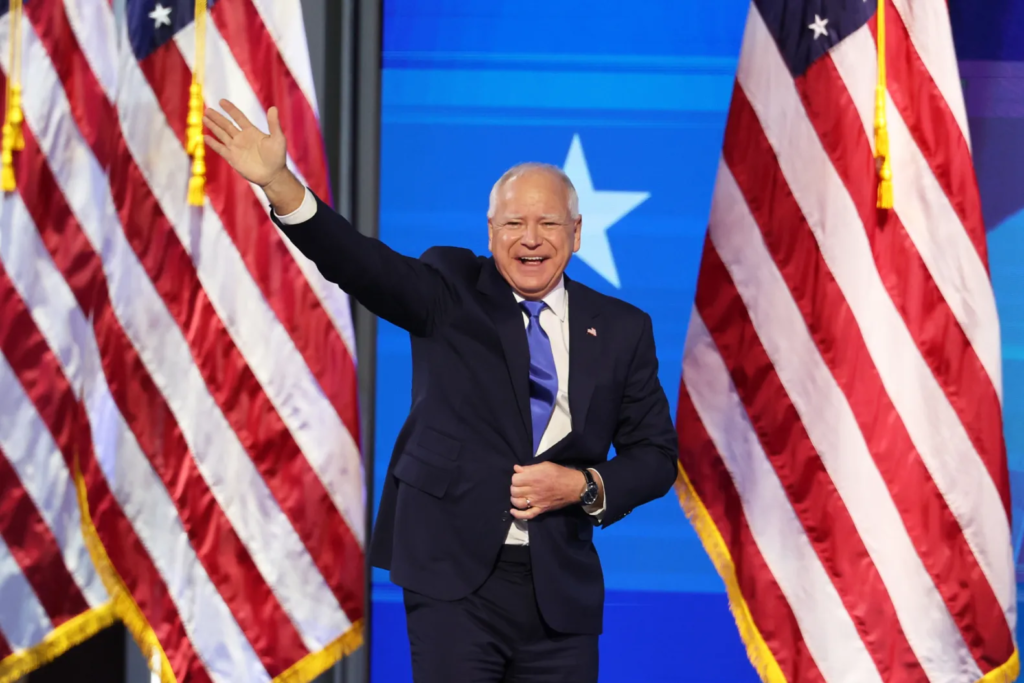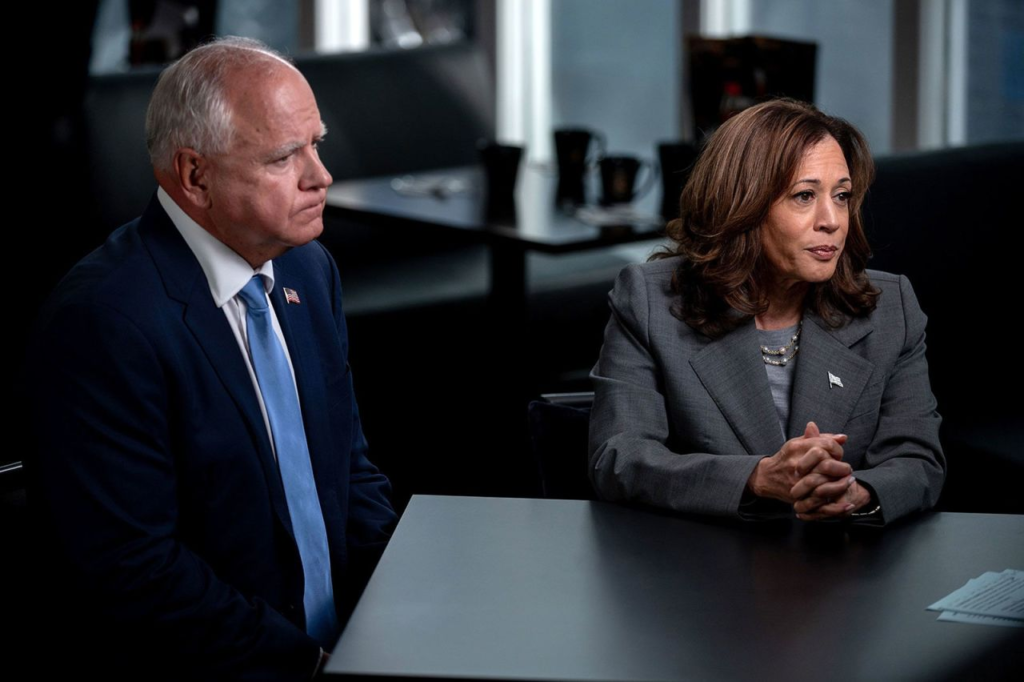Vice President Kamala Harris
In a recent and in-depth interview, Vice President Kamala Harris offered a comprehensive explanation of her evolving positions on critical issues like fracking and immigration, underscoring that while her core “values have remained consistent,” her role as vice president has allowed her to gain a more nuanced understanding. This interview, her first major televised discussion since being named the Democratic nominee, featured Harris and her running mate, Minnesota Governor Tim Walz, in a conversation with CNN’s Dana Bash. The interview, which aired on Thursday evening, provided valuable insights into their campaign strategies as the 2024 presidential election draws closer.
Kamala Harris was forthright about her shifting views on several policies, particularly her stance on fracking. Previously a strong opponent of fracking, Harris now supports it, a change she attributes to her expanded comprehension of the complexities surrounding climate policy. “As vice president, I did not ban fracking. As president, I will not ban fracking,” Harris asserted. She emphasized the Biden administration’s efforts to strike a balance between expanding fracking and advancing clean energy initiatives, notably through the Inflation Reduction Act.
This legislation aims to increase fracking while simultaneously promoting renewable energy sources. Harris stressed, “My values have not changed. It is critical to address the climate crisis with the seriousness it demands, and we must continue to work towards a thriving clean energy economy without necessarily banning fracking.”

The interview also touched on several other sensitive topics, including U.S. arms sales to Israel. When asked whether she would uphold the current administration’s policy of supporting Israel’s defense needs through arms sales, Kamala Harris chose not to make a specific commitment. Instead, she highlighted the importance of working towards a peaceful resolution to the ongoing conflict. “We have to finalize a deal. This war must come to an end, and we need to ensure that the deal includes provisions for the safe release of hostages,” she said, steering clear of discussing future arms sales in detail.
In response to former President Donald Trump’s controversial remarks about her racial identity—remarks suggesting that Kamala Harris had “turned Black” for political gain—Harris opted not to engage directly with Trump’s comments. She dismissed them as part of his “repetitive tactics” and chose to move on, stating simply, “Next question, please.”
When asked about her potential plans for her first day in office if elected, Kamala Harris avoided specifying any concrete actions. “We have 68 days to go until the election, so I’m not putting the cart before the horse,” she explained. This cautious response may indicate a strategy to avoid making promises that could later become liabilities or suggest that the campaign is still in the process of finalizing its priorities.

Governor Walz also addressed past controversies, including a false claim he made about carrying “weapons of war” during his military service, despite never having served in combat. Walz admitted the mistake, attributing it to a verbal slip, and underscored his willingness to take responsibility for errors. “I certainly own my mistakes when I make them,” he said. He also defended his passionate stance on issues such as gun control and reproductive rights, framing the election as a clear choice between contrasting visions for America’s future.
Kamala Harris took the opportunity to commend President Joe Biden, describing him as “extraordinarily strong” despite a perceived underwhelming performance in a recent CNN debate against Trump. She highlighted Biden’s “intelligence, commitment, and judgment,” which she believes are essential qualities for the presidency. Kamala Harris framed the 2024 race as a crucial moment to transcend the divisive politics of the Trump era, emphasizing the need to “lift up” Americans rather than focusing on who can be “beat down.”

The interview ultimately served to reinforce Kamala Harris’s image as a candidate who is adaptable and steadfast in her core values. It also showcased the Democratic ticket’s efforts to appeal to a broad array of voters as the election approaches, balancing between addressing past policy shifts and presenting a forward-looking vision. The discussion underscored the strategic positioning of the Harris-Walz campaign as they navigate the complexities of the 2024 presidential race, aiming to build momentum and resonate with voters across the political spectrum.
Related Links:
Federal Reserve Aggressive Rate Cut as US Jobs Lag at 150K
3 Ways Nvidia Boosts U.S. Stocks Ahead of Its Earnings Report
3 Critical Factors Behind Crypto’s Plunge Before NVIDIA’s Earnings
Top Cryptos to Invest in for Massive 20,000x Returns by 2025
3 Key Steps, US Stock Markets Face Volatility Until Elections
Donald Trump Has 60% Chance of Winning if Election Were Today
3 Reasons Why Bangladesh is Essential to US Interests
